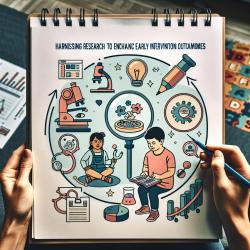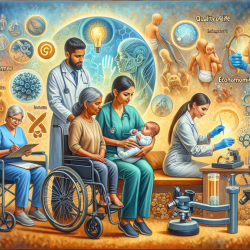Leveraging International Legal Mechanisms to Address Antimicrobial Resistance: Insights for Practitioners

Antimicrobial resistance (AMR) poses a critical threat to global health, necessitating swift and coordinated international action. The research article "Making Use of Existing International Legal Mechanisms to Manage the Global Antimicrobial Commons: Identifying Legal Hooks and Institutional Mandates" provides a comprehensive analysis of leveraging existing international legal frameworks to tackle AMR. This blog will distill key insights from the research to help practitioners improve their skills and encourage further research.
Understanding the Legal Landscape
The article identifies 37 potential mechanisms within existing international agreements that can be harnessed to address AMR. These mechanisms are categorized under three primary areas:
- Access to Antimicrobials
- Conservation of Antimicrobials
- Innovation in Antimicrobials
Access to Antimicrobials
To ensure equitable access to antimicrobials, the research suggests utilizing the World Trade Organization's (WTO) Agreement on Trade-Related Aspects of Intellectual Property Rights (TRIPS). Practitioners can advocate for:
- Compulsory licensing for generic antimicrobials in resource-limited settings.
- Creating a global pooled fund to support access and conservation initiatives.
Conservation of Antimicrobials
For conservation, the research highlights the importance of regulating non-therapeutic antimicrobial use in animals. Practitioners can push for:
- Banning the use of antimicrobials for growth promotion in animals.
- Strengthening surveillance of antimicrobial usage across sectors.
Innovation in Antimicrobials
To foster innovation, the article recommends revising the International Health Regulations (IHR) to mandate national investments in antimicrobial research and development. Practitioners can support:
- Innovative financing mechanisms for antimicrobial R&D.
- Expedited review processes for new antimicrobials.
Practical Steps for Practitioners
Practitioners can take several practical steps based on the research findings:
- Advocate for policy changes at national and international levels to incorporate these legal mechanisms.
- Collaborate with international organizations to align efforts and share best practices.
- Engage in continuous education and research to stay updated on AMR developments and legal frameworks.
Conclusion
Leveraging existing international legal mechanisms offers a viable short-term approach to address AMR while longer-term comprehensive agreements are negotiated. Practitioners play a crucial role in advocating for and implementing these strategies to safeguard global health.To read the original research paper, please follow this link:
Making Use of Existing International Legal Mechanisms to Manage the Global Antimicrobial Commons: Identifying Legal Hooks and Institutional Mandates.
Citation: Rogers Van Katwyk, S., Weldon, I., Giubilini, A., Kirchhelle, C., Harrison, M., McLean, A., Savulescu, J., & Hoffman, S. J. (2020). Making Use of Existing International Legal Mechanisms to Manage the Global Antimicrobial Commons: Identifying Legal Hooks and Institutional Mandates. Health Care Analysis. https://www.ncbi.nlm.nih.gov/pmc/articles/PMC10042894/?report=classic










